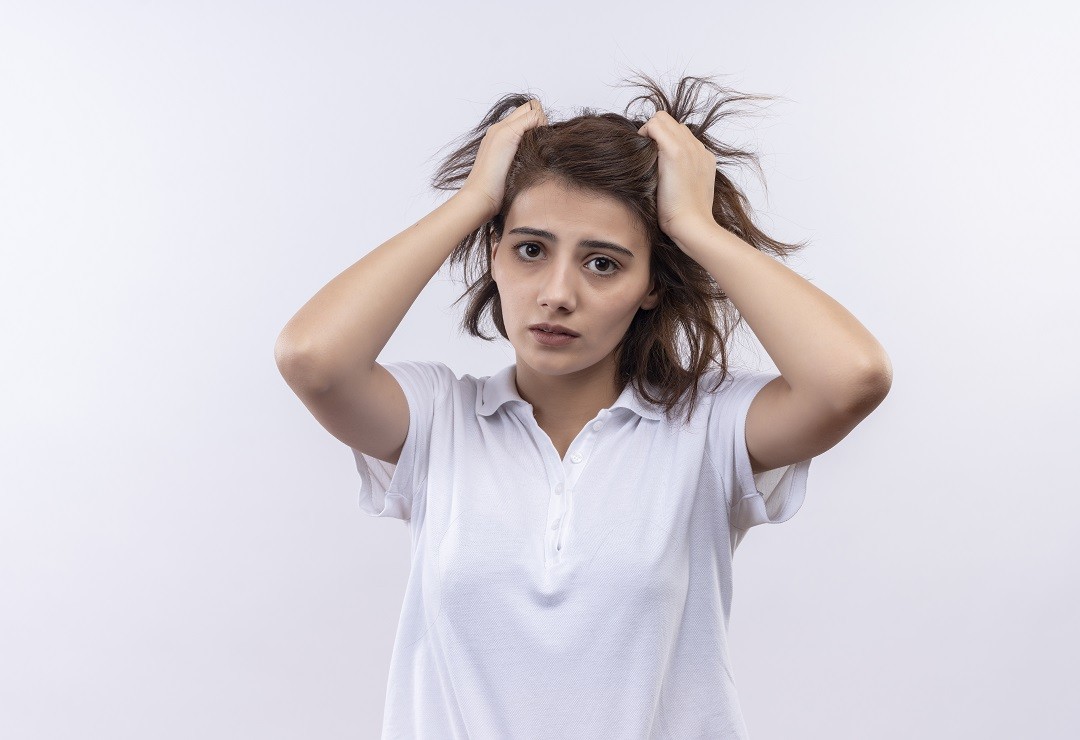
Dandruff, an issue that affects nearly half of the world's adults, can lead to visible white flakes, discomfort from an itchy scalp, and even hair loss. To understand what causes dandruff, it's essential to grasp the process behind its formation. Our body continuously produces new skin cells and sheds old ones, which then resurface in the outer layers of the skin. When there's an imbalance in scalp conditions, this cycle accelerates, causing dead skin cells and natural scalp oils to accumulate and form visible flakes.
Dandruff is often associated with an oily scalp, which can become a breeding ground for bacteria, such as Propionibacterium and Staphylococcus, and fungi, like Malassezia. These microorganisms release substances that irritate the scalp, resulting in dandruff, hair loss, and itching. If dandruff recurs frequently, it's important to explore the underlying causes.
Here are some significant factors that can contribute to imbalances in scalp conditions and trigger dandruff and an itchy scalp:
Climatic and Seasonal Changes: Dandruff tends to increase during the winter, as the dry and cold climate can lead to scalp dryness, flakiness, and itching.
Dry Air: Dryness and flakes can result from the scalp's moisture being removed by prolonged exposure to dry air from air conditioners or central heating.
Improper Hair Care: Daily hair washing, frequent use of hair dryers, and styling irons can dry out the scalp, leading to the formation of small, white flakes. Conversely, an oily scalp can result from infrequent hair washing, leading to oil and dead cell buildup and larger, oily flakes.
Sensitivity to Chemicals: Chemical residues on the scalp can be caused by harsh shampoos, conditioners, hair dyes, and synthetic styling products, in addition to hard water. These substances have the potential to irritate the scalp, change its natural acid balance, and erode its defenses against infections.
Unhealthy Diet: Insulin surges can result from consuming refined sweets, fatty foods, deep-fried foods, processed foods, and gluten products in excess. These surges may cause an increase in oil secretion and hormone synthesis. Nutritional deficiencies, especially low zinc and vitamin B2, B3, and B6 levels, can also be caused by poor dietary choices and can aggravate scalp problems.
Stress: Stress can change the amount of oil or sebum on the scalp. Sebum overproduction can serve as a haven for fungi, causing itching and flaking.
Hormonal Changes: Changes in hormone levels, particularly during puberty when the skin produces more oil, can trigger dandruff. Women may experience dandruff flare-ups during hormonal shifts, such as menopause.
Genetics: Hereditary factors can contribute to excessive cell turnover on the scalp, leading to flaking.
Scalp Issues: Dry flakes and an itchy scalp can also manifest as symptoms of underlying conditions like seborrheic dermatitis, psoriasis, or contact allergies.
When you observe flakes, it's crucial to identify and address the root cause of your dandruff. Regular use of natural, herbal oils like Neem, Rosemary, Hibiscus, and Tea Tree, which possess anti-fungal, anti-bacterial, anti-inflammatory, moisturizing, and nourishing properties, can be beneficial. moha: Anti-dandruff oil and moha: Anti-dandruff shampoo combine these herbal oils to help relieve dandruff and itchy scalp, maintain scalp oil balance, and nourish your hair roots in a natural way.


